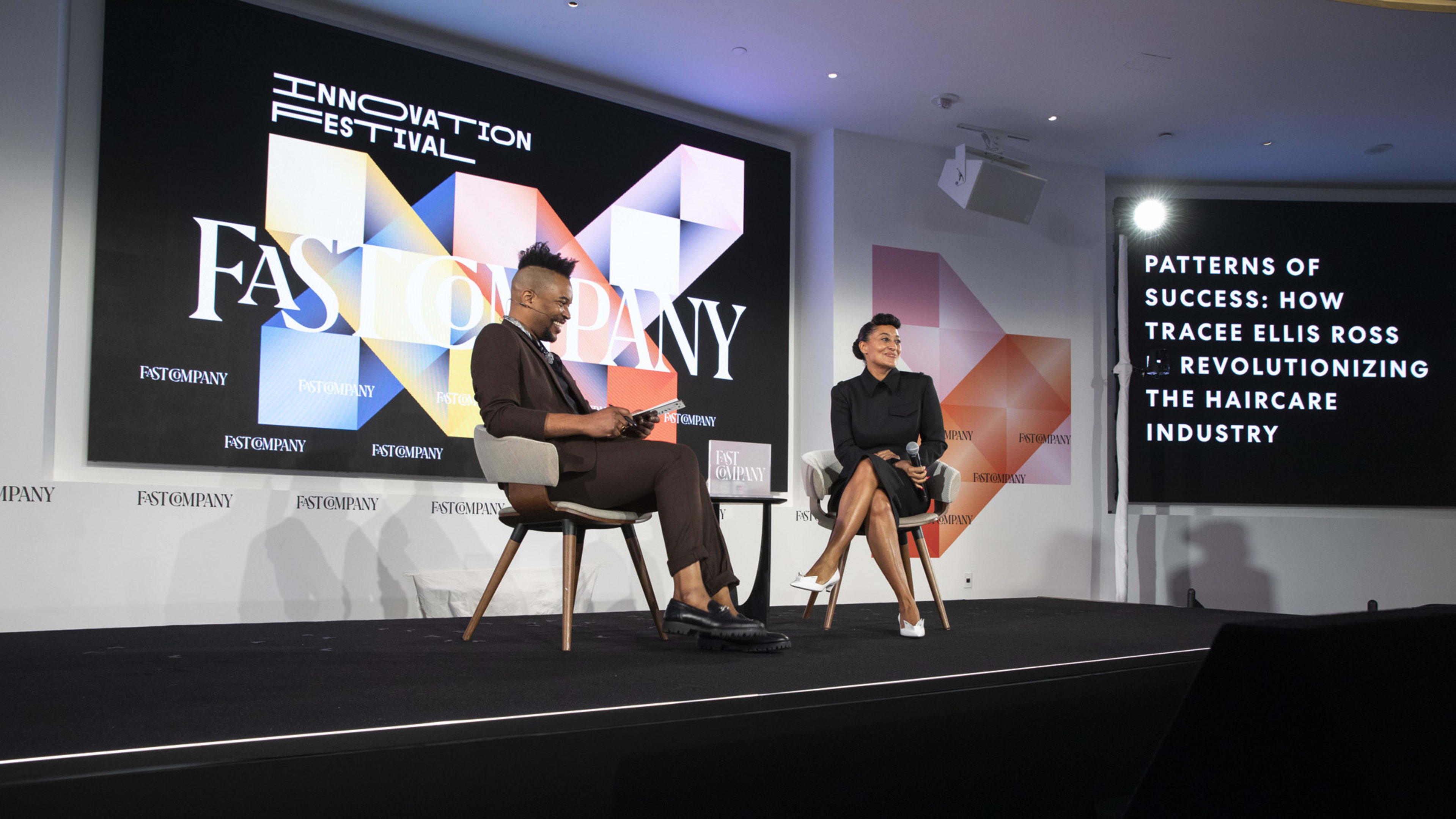Tracee Ellis Ross wants you to love your hair. That’s why, in 2019, the actor-and-producer-turned-entrepreneur founded Pattern Beauty, a Black-owned, Black-centered haircare brand for people with textured, curly hair. Back then, the company started with four people, seven products, and one retail partner. Today, it counts 30 employees, more than 50 products (including a blow-dryer designed specifically for textured hair), and 10 retail partners. But the journey has been long and winding.
At the Fast Company Innovation Festival this September, Ross talked about how the brand has evolved over the past decade, and her own personal hurdles as a Black woman trying to fit into beauty standards that didn’t reflect her own. “I spent a lot of years understanding my hair, learning to love my hair,” she said during her conversation with Kc Ifeanyi, Fast Company’s executive director of editorial programming.

The idea for Pattern Beauty materialized while Ross was in the middle of shooting the American sitcom Girlfriends, where she played the lead role. She remembered talking to a hair stylist who told her about the sheer number of people who come into the store asking for hair just like Ross’s. And when the stylist told Ross that he recommends wigs to his customers, she balked and told him, “Wait, that’s not true; you just need good products.”
That was in the early 2000s. Then Girlfriends ended, and Ross wrote her first haircare brand pitch, which eventually evolved into what she called “the hair bible.” “I knew that I wanted a glossary of terms because the way people were communicating about haircare in this area that I wanted to service were using language that felt antiquated, that felt problematic, that felt demeaning,” she said. “I was fine-tuning my language and coming up with the vision for the brand.”

Today, Pattern Beauty is all about celebrating Black beauty. “I wanted to shift the paradigm around how we were marketed to, in general, as human beings, but particularly, specifically, toward Black people,” Ross said. “The premise of marketing is often you have a problem, and you need this product in order to fix your problem, and I disagree. I shop the most when I feel good about myself. And I think inherently when you’re talking about Black people, Black beauty, Black hair, that starting with this idea that there’s a problem is problematic.”
Ultimately, though, marketing is not the only problem—perception is, too. According to a 2022 McKinsey report, Black consumers in the U.S. spend $6.6 billion on beauty, or 11% of the total $60 billion beauty industry. But Black brands get only 2.5% of the revenue within that category. Unsurprisingly, Ross herself pushed for this study to happen. “My underlying mission is to dispel the myth that Black haircare is a niche market,” she said. “That’s why I’m transparent about my journey, that’s why I want that data out there, that’s why I talk about the spending power of this community.”
Recognize your brand’s excellence by applying to this year’s Brands That Matter Awards before the final deadline, June 7.
Sign up for Brands That Matter notifications here.
